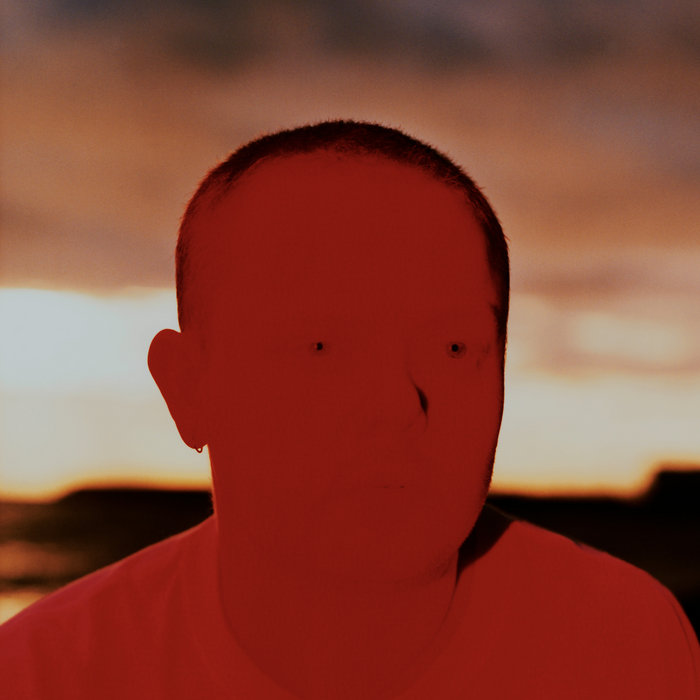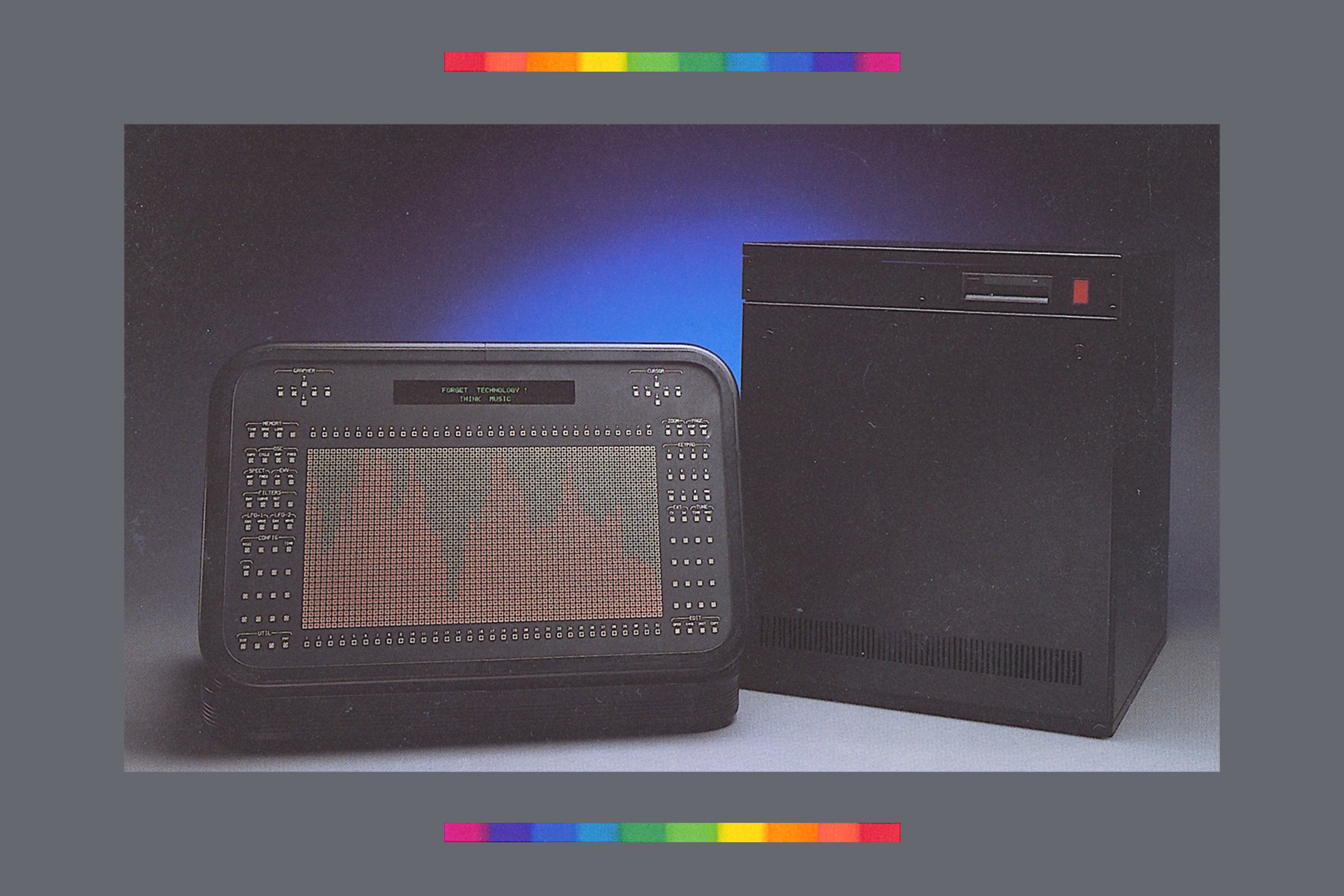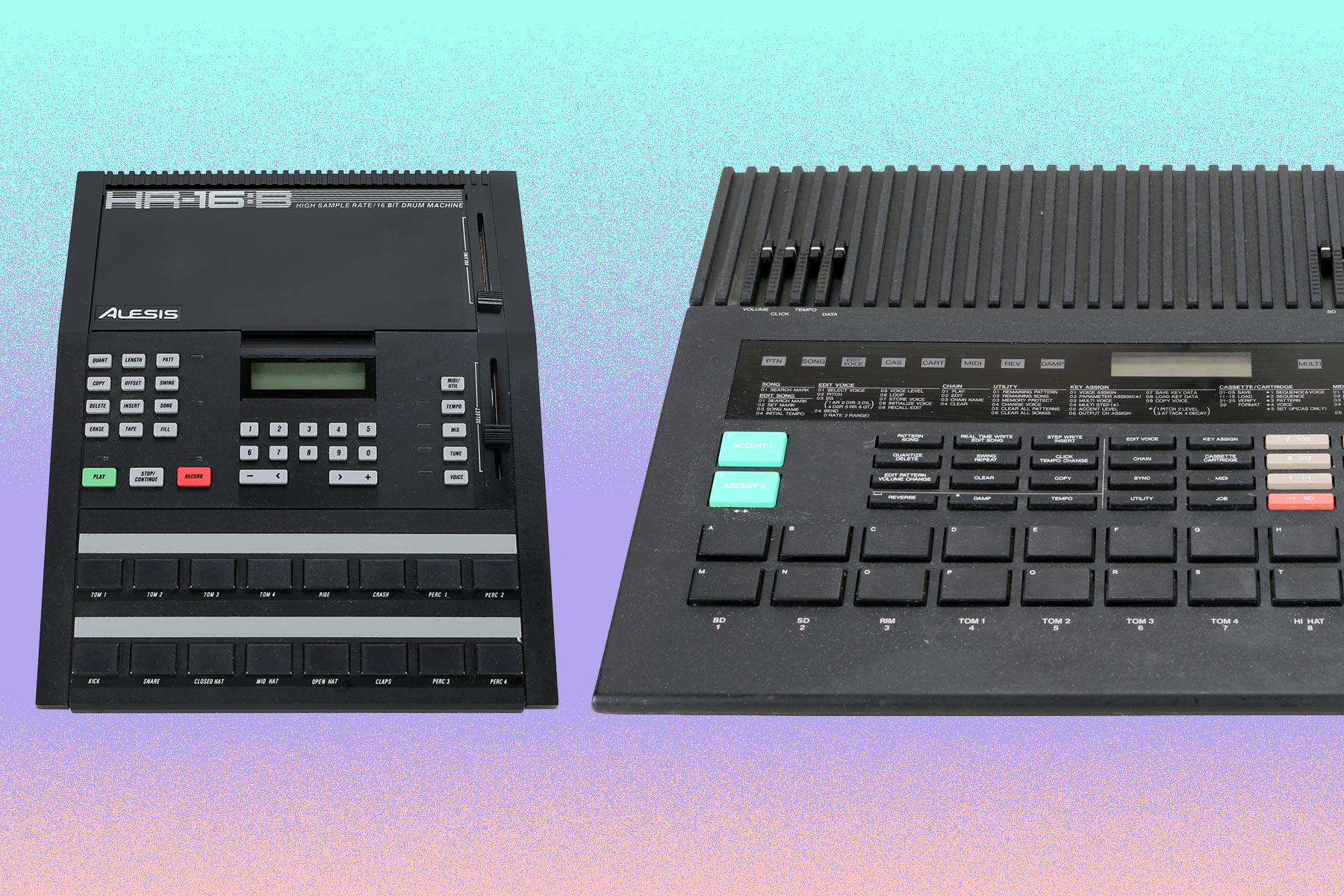The summer continues, and another Bandcamp Friday is upon us! Take some time today to explore music at Bandcamp—there's a world full of remarkably talented independent musicians out there, and you never know...your favorite music might be something you've not yet heard. Here are some of our recent favorites!
Inspiration Through Collaboration: Samuel Organ's A Safe Place in Cyberspace
Samuel Organ's A Safe Place in Cyberspace is a beautiful collection of compositions that tilts from soft and intimate, organic and tender moments to bombastic and rumbling basses and club ready rhythms. The common thread across the album however, is the masterful sound design and production; every track inspiring goosebumps in the listener, full of musical detours and variety.

The album comes across as almost a love letter to themselves and their friends, who appear in spades throughout the album, with artists like Slugabed, BABii, and Colossal Squid making standout guest appearances throughout. These features feel surprisingly organic—tracks like "Kindness" featuring BABii exude an air of intimacy between the artists, which starts to make perfect sense after learning that their friendship spans over a decade. Samuel notes, "When asked who truly inspires me, I never even consider figureheads within popular music and widely celebrated artists—I think of my friends and creators within the circles I feel lucky enough to find myself within." We think that is an awfully beautiful sentiment. Another longtime friend and artist we adore, Slugabed, makes several appearances on tracks "Rat" and "Seance," where we can hear his signature drum programming and playful attitude working to great effect alongside Organ’s textural and melodic musicality.
Tracks like the opener "Guidance" morph from warbly pianos to classic synth leads effortlessly, blending subtle textures that give the feeling of sitting right next to a piano while your friend practices. Shockingly, this album doesn’t sport a massive gear list, Organ instead opting to use mostly a small suite of VSTs as well as a MIDI bridge from his guitar, and leaning on his immense musical experience from being a lifelong musician, as well as a founding member of the acclaimed Physics House Band.
Listeners familiar with Organ’s earlier album Complex Habitat Systems will remember that album being ". . . some of my [Organ's] favourite tracks I've never found a home for. I've always felt some of these tracks have walked the fence between serene and grotesque, so giving them a home in the middle of a global pandemic seems the best time," while on A Safe Place in Cyberspace he announces that "I’ve reached a point where I feel confident enough to present myself and my music in this way as it’s the truest connection to me I can offer the listener." This bold proclamation is a beautiful expression of personal awareness, and the album reflects that evolution of both Organ’s personal and artistic growth perfectly.
A Dual Heritage: Duval Timothy's 2 Sim
Storytelling is among the most universal human experiences, sharing memories and moments with others as a collective means to navigate through life. Music itself can be seen as a tangent of storytelling, an extension of human expression that can both support words and convey feelings that can't be explained in language. And of course, combining words with music can lead to contextual shifts, emotional nuance, and overall deeper meaning.

2 Sim is a reflection on Duval Timothy's life as an individual that splits their time between London and Freetown, Sierra Leone. The phrase "2 Sim" refers to cell phones loaded up with two SIM cards, often used by someone with dual citizenship and residing in multiple countries. In each of the four tracks on 2 Sim, Timothy combines minimal musical arrangements with field recordings of life in Freetown, with spoken word contributions from friends, family, and strangers on their similar experiences featuring on the title track. Indeed, the track "2 Sim" exemplifies the delicate care that goes into piecing different stories together over a musical bed, weaving motifs into musical form around different spoken phrases and interviews. In fact, an excerpt from the conversation that inspired the name of this project made it onto the release, in a true full-circle fashion.
The rest of the tracks are compilations of candid field recordings captured over a period of two months in Sierra Leone, threaded together with driving solo piano. From the sounds of transit and kids playing in "Botany RD," the rhythmic drive and sounds of community in "All Things," and the welcoming of rain in "First Rain," much of the 2 Sim EP is an aural fly-on-the-wall perspective on multinational life. The raw snapshots of life over a backdrop of Timothy's minimalist piano playing convey a sense of nostalgia and familiarity, thus supplementing these recordings of otherwise normal, everyday experiences. While there's a time and place for extensive manipulation of field recordings, Timothy recognizes the symbolic and emotional impact of relatively pure accounts of those stories and moments on the themes conveyed in this release, especially when accompanied by music. All in all, 2 Sim is a sincere and personal perspective on Timothy's life, observing the sounds and stories of others around him in one of his homes.
Intimate Ambience: teasips's primrose

primrose by teasips is a collection of longform improvisations that encourages patience and requires attention—but once you're in the right headspace, be ready to be fully enveloped by its minimal soundscapes. At a pace on par with dusk's shift in hue gradations, these four tracks span almost 90m, cradling you into a relaxed evening mood. Los Angeles-based artist Angela Frances Wilson, who goes by teasips, often performs and records collaboratively, however, primrose focuses solely on her personal practice. It plays like a diary, raw and vulnerable—a secret written in code that can only be deciphered after spending some time observing.
Each of these four tracks has its own distinct flavor, informing each subsequent track when listened in order. "unhoped" is a gentle entry into the rest of the album, with a gentle, repeated loop evolving like high-mountain mist. "yin yank" and "yang yank" are appropriately titled, as they feel like two halves of a spectral whole, with the former exploring low frequencies and deep textures while the the latter is concerned with high frequencies and whispered currents. The final track, "concerning care" feels like listening in on a conversation in the aforementioned code, and after spending the previous three-tracks-worth of time with the language, you can finally understand.
Beyond "West Coast": Buchla Now Compilation
Don Buchla is likely a familiar character to most people in the world of modular synthesis—but outside this niche, the name "Buchla" is still considerably more obscure than those of his contemporaries Moog, Oberheim, and others. In case you're not already familiar, Don Buchla was one of the first creators of an analog modular synthesizer—completing his first such instrument, the Buchla 100 Series Modular Electronic Music System, in 1965 in collaboration with the musicians of the San Francisco Tape Music Center. Buchla spent the rest of his life relentlessly exploring the artistic implications of electronic instrument design—and his name remains obscure to many because, unlike many others, he was largely unconcerned with commercial success. He made many peculiar instruments and controllers throughout his life, always carefully considering the countless ways that musicians could interact with their instruments...and thus inspiring the creation of countless new musics from those who use and study his designs.

Of course, as modular synths have regained popularity, Buchla's place in the history of electronic music is solidifying—and now, his instruments are more visible than ever before, making appearances in everything from film scores to Pitchfork album reviews. Curated by renowned Buchla musician Todd Barton and released by experimental tape label Ultraviolet Light in 2020, Buchla Now was a compilation cassette of music made on Buchla instruments. Originally sold out in just a few days, the present re-release is available both on cassette and in digital format (for the first time!). Having missed out on the first run, I'm thrilled that this re-issue has come along—it is absolutely full of beautifully crafted music from a collection of astonishing musicians.
Even those vaguely familiar with Buchla instruments might be familiar with some stereotypical sounds people associate with so-called "West Coast Synthesis"—plonks, synthesized bongos, and abstract timbres with lots of randomness. To be fair, for a long time, these instruments were associated with only a small handful of musicians who primarily worked in the realm of academic electronic music...so the way we think of their sound really is mostly a stylistic association, and not a truth about their capabilities or relevance to other types of music-making.
While Buchla Now does have its fair share of plonks and randomness, this compilation is a perfect example of how Buchla's instruments are capable of much more—and how they can fit into a wide range of musical styles, from exploratory improvisation to peaceful ambiences and even pop-like, driving rhythmic and harmonic structures. Barton's selection of artists intentionally highlights musicians who have a deep relationship with these synthesizers, and who all have highly idiosyncratic approaches to music-making. From Hans Tammen's harsh, exploratory "ääniä" to Suzanne Ciani's peaceful, contemplative "Empty Skies"—from Kaitlyn Aurelia Smith's slowly drifting "Moon Like a Marble" to Dan Deacon's maximalist, rhythmic, and uplifting "Unseen Objects," Buchla Now shows that these instruments are for more than making peculiar sounds: they are deep instruments which, now many decades into their existence, still offer a vast realm of untapped expressive potential.
Tactile, Illogical Noise: cd_slopper's pfanscotcoe
I've had cd_slopper's release pfanscotcoe on repeat for the better part of 2021—largely because it is so peculiar and so enigmatic. Created by the, well, famously enigmatic composer Florian Hecker in collaboration with Oswald Berthold, pfanscotcoe is some of the highest-grade digital music nonsense I've come across in quite a while—and I do mean that in the most sincere and appreciative sense.

Hecker's music is known for its relationship to earlier "academic" avant-garde electronic/electroacoustic music—and, from my perspective, I've learned to appreciate his music in part by appreciating much of its sheer absurdity. Earlier works like Sun Pandämonium are a tour-de-force of noise, from harshly digital blasts to mystifying soundscapes and gestural, almost animal (but somehow more caricature-like?) sounds. With sounds presented as sounds and not seemingly with complete regard to their inherent "musicality," this work is often challenging and abrasive—but if you can appreciate the complexity of each tone, the way they flex, disintegrate, and re-form, and the way that they often almost comically juxtapose one another, there's a lot of enjoyment to be discovered there. Other works like 2009's Acid in the Style of David Tudor put an even more peculiar and absurd spin on the "musicality" of electronic sound—conflating two vastly different stylistic concepts into something clearly absurd—and every bit as entertaining as it is disturbing.
This collaboration with Oswald Berthold has a similar atmosphere. Comprised of ten tracks mostly around two minutes in length each, I think of pfanscotcoe as a series of miniatures—each itself comprised of a collage-like juxtaposition of dissimilar (but all highly articulate) electronic or electronically processed sounds. In many ways minimalistic, this album is full of illogical and sudden transitions between rhythmic bursts, pattern-like structures, cartoon-like dance music rhythms, and almost indescribable undulating, glistening, bristling textures. Pieces largely eschew developmental structure in favor of hard cuts between vastly different sounds, tossing the listener between "spaces" that they grow to suspect could be ripped out from under them at any given moment. Changes are sudden and frequent—a tasting menu of unlikely and unexpected sonic combinations.
With track titles like "dqawa wumplex-ƙ" (one of my personal favorites on the album), it seems safe to assume that Hecker and Berthold happily lean in to the playful absurdity of their sonic constructions. And if the track titles alone aren't enough, perhaps the album's liner notes contain a clue: "ingredients prepared and pickled in time," "And an udfnastblat of the vernacular vernacular vernacular vernacular vernacular vernacular vern".








